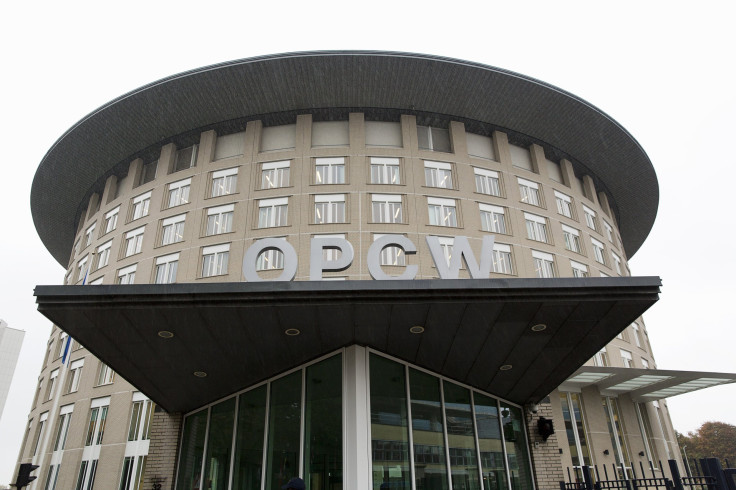Nobel Peace Prize Goes To Hague-Based Anti-Chemical Weapons Body

Organization for the Prohibition of Chemical Weapons, or OPCW, a Hague-based organization working against the use of chemical weapons, has bagged this year’s Nobel Peace Prize for “its extensive efforts to eliminate chemical weapons.”
OPCW is currently working on Syria’s chemical weapons hoard, and earlier this week, OPCW Director-General Ahmet Uzumcu called for a cease-fire between the Syrian government and rebel forces, so as to gain access to sites to continue dismantling the country’s chemical weapons.
But, it is not the organization’s work in Syria that helped it clinch the award, the Nobel committee said at a press conference after announcing the winner.
"OPCW has not been given this prize because of Syria," Thorbjorn Jagland, chairman of the Norwegian Nobel Committee, told reporters, according to The Verge. "It's because of its longstanding goal to get rid of chemical weapons and weapons of mass destruction."
Barely an hour before the official announcement was due, Norwegian public broadcaster NRK, which has a strong record of reporting winners, predicted that the award would be given to OPCW.
OPCW, which counts 189 countries as member states accounting for about 98 percent of the world's population, is an independent international body founded in 1997 to uphold the Chemical Weapons Convention, and has a working relationship with the United Nations.
© Copyright IBTimes 2024. All rights reserved.





















